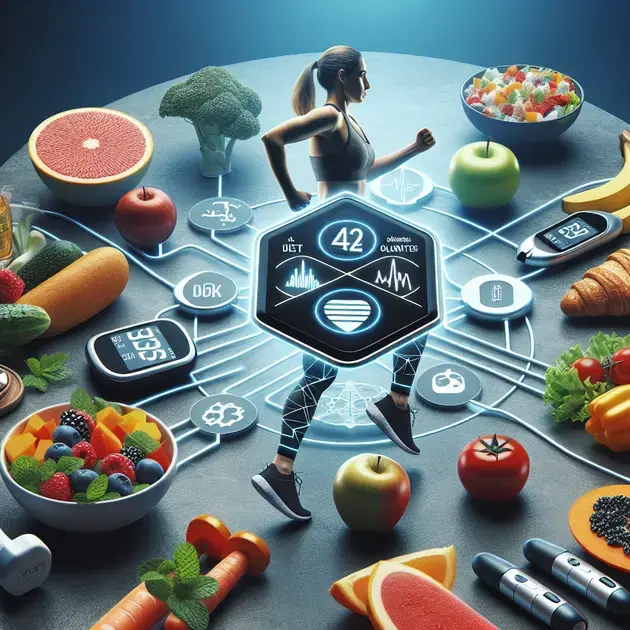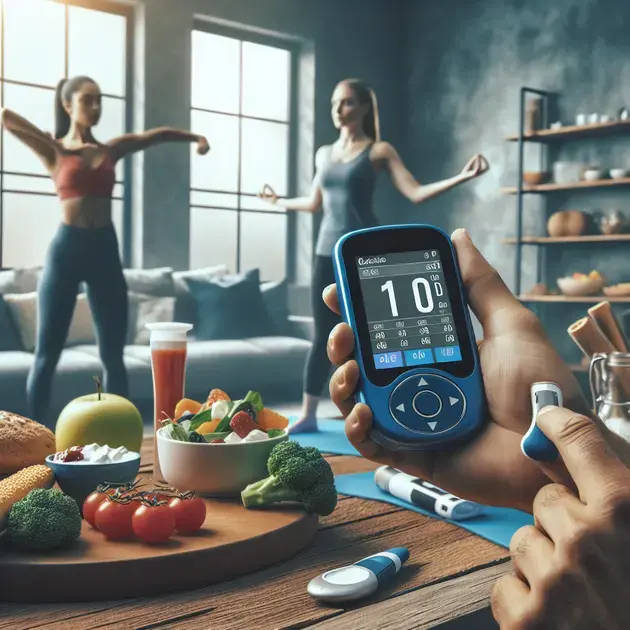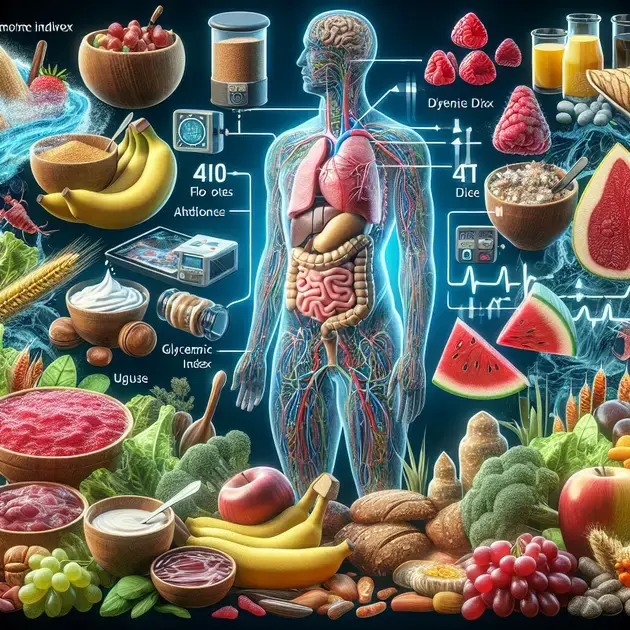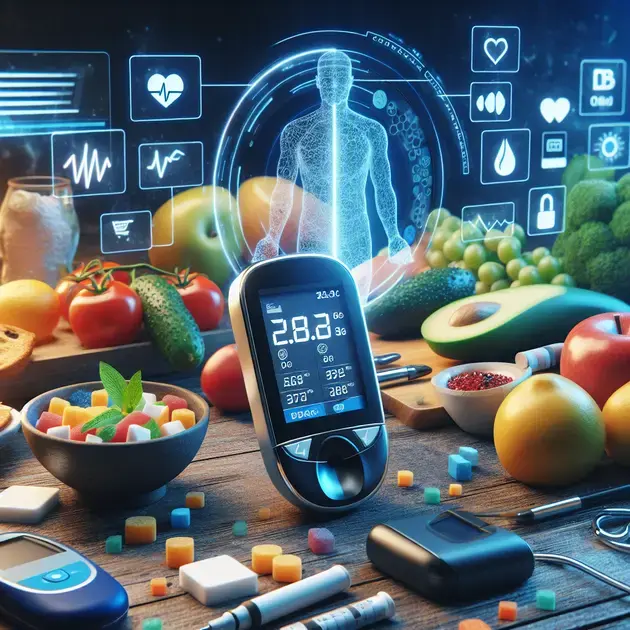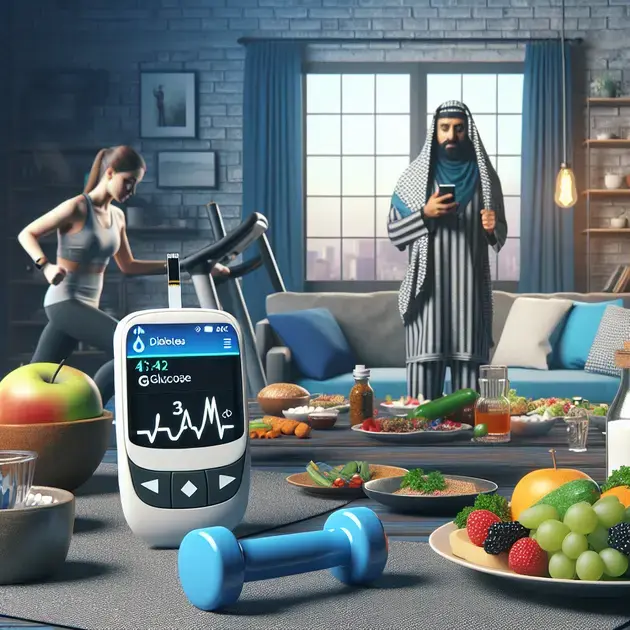Managing diabetes sugar ranges is crucial for individuals living with diabetes. This comprehensive guide aims to provide valuable information on how to effectively monitor and control blood sugar levels to maintain optimal health.
With the latest advancements in technology, managing diabetes has become more accessible and convenient. From continuous glucose monitoring systems to smartphone apps that track sugar levels, individuals now have various tools to assist them in their diabetes management journey.
How Blood Sugar Impacts Your Health
Understanding how blood sugar impacts your health is crucial for managing conditions like diabetes. When your blood sugar levels are consistently high or low, it can lead to various health complications. High blood sugar, or hyperglycemia, can cause symptoms like increased thirst, frequent urination, fatigue, and blurred vision. On the other hand, low blood sugar, or hypoglycemia, can result in shakiness, confusion, irritability, and in severe cases, loss of consciousness.
Monitoring your blood sugar levels regularly is essential to ensure they stay within a healthy range. Using innovative tools like continuous glucose monitors (CGMs) can provide real-time data on your blood sugar levels throughout the day. Apps like Dexcom G6 and FreeStyle Libre allow users to track their blood sugar trends, set personalized alerts for high or low levels, and share data with healthcare providers for better management.
Managing your blood sugar effectively involves a combination of proper nutrition, regular exercise, medication adherence, and stress management. By following a balanced diet rich in fruits, vegetables, whole grains, and lean proteins, you can help regulate your blood sugar levels. Tracking your meals and blood sugar readings using apps like MyFitnessPal or Glooko can provide valuable insights into how different foods affect your body.
Staying physically active is also key to managing blood sugar levels. Incorporating activities like walking, cycling, or strength training into your routine can improve insulin sensitivity and help control blood sugar. Fitness apps like Fitbit and Strava offer personalized workout plans and activity tracking features to keep you motivated and on track with your exercise goals.
In addition to diet and exercise, it’s essential to take your medications as prescribed and monitor your blood sugar levels regularly. By following a comprehensive approach to managing your blood sugar, you can reduce the risk of complications and improve your overall health and well-being.
Innovative Tools for Monitoring Blood Sugar Levels
When it comes to monitoring blood sugar levels, innovative tools have revolutionized the way individuals with diabetes manage their condition. Continuous glucose monitors (CGMs) have become indispensable devices for tracking blood sugar trends in real time. Brands like Dexcom and Medtronic offer CGM systems that provide continuous glucose readings, customizable alerts, and data sharing capabilities with healthcare providers.
Mobile apps like mySugr and Sugarmate complement CGM devices by allowing users to log additional information such as food intake, exercise, and medication usage. These apps provide insights into how lifestyle choices impact blood sugar levels and can help individuals make informed decisions about their health. By syncing data from CGMs and other devices, these apps offer a comprehensive view of blood sugar management.
For individuals who prefer a more discreet monitoring solution, continuous glucose monitoring patches like the Eversense XL offer extended wear time and hassle-free readings. These patches can be worn for up to 90 days, providing continuous monitoring without the need for frequent sensor changes. Apps like Eversense Mobile allow users to scan the patch for instant blood sugar readings and trend analysis.
Another innovative tool for monitoring blood sugar levels is the Flash Glucose Monitoring system, which eliminates the need for routine finger pricks. Devices like the FreeStyle Libre offer sensor-based glucose monitoring that can be scanned using a smartphone for quick and painless readings. With features like glucose trend arrows and customizable alarms, these systems provide valuable insights for effective blood sugar management.
By leveraging these innovative tools and technologies, individuals with diabetes can gain better control over their blood sugar levels and reduce the risk of complications associated with uncontrolled diabetes.
Tips for Effectively Managing Diabetes Sugar Ranges
Managing diabetes sugar ranges requires a multifaceted approach that combines lifestyle modifications, medication adherence, and regular monitoring. One essential tip is to establish a routine for checking your blood sugar levels at consistent times throughout the day. Utilizing blood glucose meters like Accu-Chek or OneTouch can help you track your levels and adjust your treatment plan accordingly.
Keeping a detailed log of your blood sugar readings, meals, and physical activity can provide valuable insights into patterns and trends that may affect your sugar ranges. Apps like Glucose Buddy and mySugr allow users to log this information digitally, set reminders for testing, and generate reports for healthcare providers. By maintaining accurate records, you can work with your healthcare team to make informed decisions about your diabetes management.
Another tip for managing diabetes sugar ranges is to pay attention to the glycemic index of foods you consume. Choosing low glycemic index foods like whole grains, legumes, and non-starchy vegetables can help stabilize blood sugar levels and prevent sudden spikes. Apps like MyNetDiary and Fooducate provide information on the glycemic index of foods and can assist you in making healthy choices.
Regular physical activity is also essential for managing diabetes sugar ranges. Engaging in aerobic exercises like walking, swimming, or dancing can improve insulin sensitivity and help regulate blood sugar levels. Fitness apps like Nike Training Club and Seven offer guided workouts and progress tracking features to keep you motivated and active.
Lastly, it’s vital to communicate openly with your healthcare team about your diabetes management goals and any challenges you may be facing. By working collaboratively with your doctor, diabetes educator, and other healthcare professionals, you can develop a personalized plan for effectively managing your diabetes sugar ranges and improving your overall quality of life.
Practical Strategies for Maintaining Stable Blood Sugar Levels
Effective management of blood sugar levels is crucial for overall health and well-being, especially for individuals with diabetes. Here are some practical strategies to help maintain stable blood sugar levels:
1. Balanced Diet:
A balanced diet plays a vital role in regulating blood sugar levels. Focus on consuming a variety of nutrient-dense foods, such as whole grains, lean proteins, fruits, and vegetables. Avoid excessive intake of sugary and processed foods that can cause spikes in blood sugar.
2. Regular Exercise:
Physical activity is key to controlling blood sugar levels. Aim for at least 30 minutes of moderate exercise most days of the week. Incorporating a mix of aerobic exercises and strength training can help improve insulin sensitivity and glucose utilization.
3. Monitoring Blood Sugar:
Regular monitoring of blood sugar levels is essential to track fluctuations and make necessary adjustments to your management plan. Keep a log of your readings and discuss them with your healthcare provider to ensure you are on the right track.
4. Adequate Hydration:
Proper hydration is essential for blood sugar regulation. Drink plenty of water throughout the day to help flush out toxins and maintain optimal function of bodily processes. Be mindful of sugary drinks that can lead to blood sugar imbalances.
5. Stress Management:
Chronic stress can negatively impact blood sugar levels. Incorporate stress-reducing activities such as yoga, meditation, or deep breathing exercises into your daily routine to promote relaxation and overall well-being.
Nutritional Support for Managing Diabetes Sugar Variations
Proper nutrition is fundamental in managing diabetes and supporting stable blood sugar levels. Here are some key nutritional strategies to help manage diabetes sugar variations:
1. Fiber-Rich Foods:
Incorporating fiber-rich foods like whole grains, legumes, and vegetables can help slow down the absorption of sugar and promote better blood sugar control. Aim to include these foods in your meals and snacks regularly.
2. Healthy Fats:
Healthy fats, such as those found in nuts, seeds, and avocados, can help improve insulin sensitivity and reduce inflammation in the body. Include sources of healthy fats in your diet to support overall blood sugar management.
3. Portion Control:
Monitoring portion sizes is essential for controlling blood sugar levels. Be mindful of proper portion sizes to prevent overeating and manage glucose levels effectively. Consider using measuring cups or visual guides to help with portion control.
4. Regular Meal Timing:
Eating meals at consistent times each day can help stabilize blood sugar levels and prevent drastic fluctuations. Aim to space out your meals evenly throughout the day and avoid long periods of fasting to maintain steady glucose levels.
5. Herbal Supplements:
Some herbal supplements, such as cinnamon and fenugreek, have been shown to have beneficial effects on blood sugar levels. Consult with a healthcare provider before incorporating any herbal supplements into your diabetes management plan.
Holistic Approaches to Balancing Blood Glucose Levels
Adopting a holistic approach to balancing blood glucose levels involves addressing various aspects of health and well-being. Here are some holistic strategies to help maintain optimal blood sugar balance:
1. Mind-Body Practices:
Practices like mindfulness meditation, tai chi, and yoga can help reduce stress levels and promote relaxation, leading to better blood sugar control. Incorporate these mind-body practices into your daily routine for overall well-being.
2. Adequate Sleep:
Prioritize getting enough quality sleep each night, as insufficient sleep can disrupt hormones involved in blood sugar regulation. Aim for 7-9 hours of sleep to support optimal metabolic function and blood glucose balance.
3. Social Support:
Having a strong support system can positively impact your mental and emotional well-being, which in turn can help stabilize blood sugar levels. Engage with friends, family, or support groups to stay connected and motivated on your health journey.
4. Holistic Therapies:
Explore holistic therapies like acupuncture, massage, or aromatherapy to support overall health and balance. These therapies can help reduce stress, improve circulation, and promote overall well-being, contributing to better blood glucose control.
5. Comprehensive Health Evaluation:
Consider working with a healthcare provider who takes a holistic approach to diabetes management. A comprehensive evaluation of your overall health, including lifestyle, diet, stress levels, and emotional well-being, can provide valuable insights and personalized recommendations for balancing blood glucose levels.
Conclusion
In conclusion, maintaining stable blood sugar levels is essential for overall health and well-being, particularly for individuals managing diabetes. By following practical strategies such as adopting a balanced diet rich in nutrient-dense foods like whole grains and lean proteins, engaging in regular physical activity, and monitoring blood sugar levels consistently, one can effectively regulate blood sugar levels.
Furthermore,
Embracing holistic approaches like incorporating mind-body practices such as yoga and meditation, ensuring adequate sleep, seeking social support, and exploring holistic therapies can contribute to better blood sugar control and overall well-being. These strategies, along with proper nutrition and portion control, play a crucial role in managing diabetes and promoting stable blood sugar levels.
Overall,
A comprehensive evaluation of one’s health, including lifestyle, diet, stress levels, and emotional well-being, is vital in developing a personalized plan for balancing blood glucose levels. By integrating these diverse strategies into daily life, individuals can enhance their quality of life and effectively manage blood sugar levels for long-term health.
